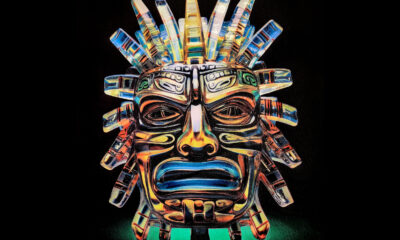boot·leg -‘boot’leg/adjective
1. (especially of liquor, computer software, or recordings) made, distributed, or sold illegally.
synonyms: illegal, illicit, unlawful, unauthorized, unlicensed, pirated
And yes, grammar police, there are also verb and noun versions, and even a football play, but they all reference the same thing, more or less. Let’s move on.
boot·leg -‘boot’leg/adjective
1. (especially of liquor, computer software, or recordings) made, distributed, or sold illegally.
synonyms: illegal, illicit, unlawful, unauthorized, unlicensed, pirated
And yes, grammar police, there are also verb and noun versions, and even a football play, but they all reference the same thing, more or less. Let’s move on.
Today, in this age of disruption and constant change, we get to add “online sale and production of T-shirts and art” to the definition. And while there are entire government agencies policing illegal liquor and recordings, or the threat of expulsion from college or dismissal from your job if you plagiarize writing, the theft and reproduction of pop culture-related images seem to get a pass, unless you have some heavy legal artillery at your disposal.
Advertisement
Kyler Sharp, an artist from Texas, lays it out for us. “What they’ll do is grab art from the internet and place it onto a photograph of a T-shirt, and then post the item to sell on eBay. If an item sells, then they’ll just use a direct-to-garment printer and print the art to a shirt. But, my art and most others’ art is always uploaded as low-resolution images meant only for internet viewing. As graphics pros know, low-res images aren’t meant for printing and won’t look good.”
The artists who are getting ripped off this way number in the hundreds, if not thousands. It’s an image theft epidemic and it’s growing, driven by a number of internet startups that supply platform websites and then link their customers to production facilities. The overseas factories that used to be the source of almost all bootleg merchandise have been supplanted by US-based operations. Basically, any bozo with a computer can be in the merch biz – in most cases they don’t even need a DTG printer since other companies do the printing for them.
And they act fast. Kyler continues, “Recently, after the death of Chris Cornell, some of my work popped up on Amazon. The bootlegger was grabbing my poster art and photographs, posterizing them in Photoshop, making them one-color images, and then posting them to sell on Amazon. This actually happened the day of Chris’s death. Very tacky!
“Facebook and Instagram both have ads galore selling bootlegged posters. The companies buying the ads promote them as ‘Tool Fans, Fans of Tool, Soundgarden Fans, The Ultimate Soundgarden,’ etc.”
Mike Mancuso, of The Yetee in Aurora, Illinois, puts it bluntly: “It is really hurting the artists we work with. Their whole portfolios are ripped off and sold through sites like  .”
.”
Rick Biskit Roth of the Ink Kitchen, a guy who has seen just about everything in the apparel business over a long career, says, “My big issue is even when you catch somebody stealing your designs on all these sites, they make you go through a big long bunch of bulls*** instead of making the thief prove they have the right to use it.”
Advertisement
This is the crux of the matter. Amazon, eBay, Facebook, and Instagram all have anti-piracy provisions for sellers using their sites, but they are more concerned with a female breast appearing in a post than somebody selling illegal T-shirts. And unless you have some expensive lawyers and a big brand name, not much happens.
Ben Nylen, a printer with Shelterbelt Studio in Minneapolis, recently had a poster appear on a site called  , used without permission. This led him on a mission to get it taken down, which drew him into the dark side of the so-called digital revolution in the T-shirt industry.
, used without permission. This led him on a mission to get it taken down, which drew him into the dark side of the so-called digital revolution in the T-shirt industry.
He found that the site using his art was powered by a platform that had been in the news recently. Ben picks up the story: “In 2016, the company that produces ‘Hamilton’ sued GearLaunch, SunFrog, and a number of ‘John Does’ for producing unauthorized merchandise. They ultimately settled ‘amicably’ this February, with SunFrog and GearLaunch making a large donation to a charity and assuring they would take measures to stop the rampant IP theft perpetrated by other businesses they claim are their clients.
“Well, they certainly don’t seem to be cracking down,” he continues. “I, and many other poster artists, have witnessed a huge uptick in these pernicious fake ads as of late. We want to make it stop.”
Interestingly, while both SunFrog and GearLaunch were named in the “Hamilton” suit, the case apparently didn’t shed any light on the nature of how these businesses operate or how they are tied together. Ben experienced that. He says a customer support person from SunFrog told him that they weren’t affiliated with the site he was chasing. So he phoned  customer service, but was connected to a different company. Finally, two weeks later, he got a call from someone who said she represented
customer service, but was connected to a different company. Finally, two weeks later, he got a call from someone who said she represented  and would take his concerns very seriously, though she refused to give her full name. Ben says she confirmed that the site used GearLaunch as its platform.
and would take his concerns very seriously, though she refused to give her full name. Ben says she confirmed that the site used GearLaunch as its platform.
SunFrog represents the “new” model of apparel decorating, one of many names most of you know (and that, in the interest of saving some ink, we chose not to list and/or black out). Part of their marketing strategy involves flooding Facebook feeds with ads that link to fake fan pages. Those ads, often, come from bootleggers that print low-res, low quality, unauthorized versions of peoples’ work direct to garment or paper without permission. The platforms make no claims as to ownership of the merchandising rights and thus, feel they have deniability. Except, it seems, when the wrath of a “Hamilton” comes down.
Advertisement
Read more from Screen Printing‘s August/September 2017 issue or check out more “Shop Talk” from Andy MacDougall.


 Art, Ad, or Alchemy1 month ago
Art, Ad, or Alchemy1 month ago
 Case Studies1 month ago
Case Studies1 month ago
 Andy MacDougall1 month ago
Andy MacDougall1 month ago
 Columns2 weeks ago
Columns2 weeks ago
 Editor's Note2 weeks ago
Editor's Note2 weeks ago
 Thomas Trimingham2 months ago
Thomas Trimingham2 months ago
 Marshall Atkinson2 weeks ago
Marshall Atkinson2 weeks ago
 News & Trends1 month ago
News & Trends1 month ago















